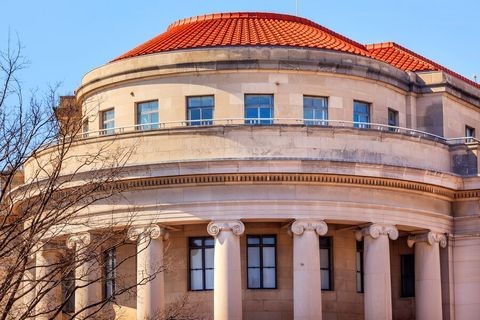Supreme Court Declines Certiorari in Altera, Stock-Based Compensation Cost Sharing Regulations Stand
Client Alert | 3 min read | 06.26.20
On June 22, 2020, the U.S. Supreme Court denied Altera’s petition for writ of certiorari, declining to review the Ninth Circuit’s decision regarding the validity of Treasury Regulations under Section 482 which require cost sharing of stock-based compensation. The denial of certiorari ends Altera’s eight years of litigation, confirming that stock-based compensation must be included in costs shared under a qualified cost sharing arrangement and affirming the deference to be given to Treasury Regulations – at least in the Ninth Circuit.
The tax community has followed Altera closely, not only for its stock-based compensation ruling, but also for its erosion of the arm’s-length standard as the measure in transfer pricing cases, and the opinion’s application of the Administrative Procedures Act to Treasury Regulations. While Altera was pending, many taxpayers with related tax disputes agreed to be bound by the outcome of Altera, and many cost sharing arrangements were amended to include language requiring or not requiring cost sharing of stock-based compensation based on the outcome of Altera. Accordingly, many stock-based compensation issues are now resolved.
Nevertheless, because the Supreme Court declined to review Altera, application of the Treasury Regulations is still in flux for those not ultimately bound by the Ninth Circuit’s decision. Taxpayers in the Ninth Circuit, however, including companies in Silicon Valley where many stock-based compensation cost-sharing issues arise, now have certainty as to the application of the Treasury Regulations. Much of the tax community disagrees with Altera and expects additional litigation. The Tax Court will follow the Ninth Circuit’s decision, and respect the Treasury Regulations as valid, for Tax Court cases arising from the Ninth Circuit, but whether the Tax Court will agree for cases arising in other circuits remains uncertain. It seems likely that this battle is not yet over, and taxpayers may face different standards depending on their Court of Appeals.
The IRS, however, is undeterred and unaffected by taxpayer location. In a July 31, 2019 directive, the IRS instructed agents to resume enforcement of Treasury Regulations §§ 1.482-7A(d)(2) and 1.482-7(d)(3). The directive specifically provides: “U.S. taxpayers that are cost sharing participants are required to include [stock based compensation] as intangible development costs . . . under Treas. Reg. §§ 1.482-7A(d)(2) and 1.482-7(d)(3), if such costs are directly identified with, or reasonably allocable to, the intangible development activity of the [cost sharing arrangement].” See Directive LB&I-04-0719-008 (July 31, 2019). Given the IRS’s directive and the Supreme Court’s denial of certiorari, taxpayers should review their compliance with the Treasury Regulations, understanding that the IRS will enforce the existing regulations and require at least a Court of Appeals decision before conceding otherwise.
For previous coverage of Altera and the application of Treasury Regulations §§ 1.482-7A(d)(2) and 1.482-7(d)(3) visit: Ninth Circuit Revisits Altera and Again Reverses Tax Court, IRS Scores a Resounding Transfer Pricing and APA Win: Ninth Circuit Reverses Tax Court Holding in Altera, and Tax Court Strikes Down Treasury Regulation Requiring Cost Sharing of Stock-Based Compensation.
Insights
Client Alert | 11 min read | 05.17.24
FTC Finalizes Modifications to Broaden the Applicability of the Health Breach Notification Rule
On April 26, 2024, the Federal Trade Commission (“FTC”) announced a final rule (“Final Rule”) modifying the Health Breach Notification Rule (“HBNR”). The Final Rule, which largely finalizes changes proposed in a Notice of Proposed Rulemaking published last year (“2023 NPRM”), broadens the scope of entities subject to the HBNR, including many mobile health applications (“apps”) and similar technologies, and clarifies that breaches subject to the HBNR include not only cybersecurity intrusions but also unauthorized disclosures, even those that are voluntary. The Final Rule will take effect 60 days after its publication in the Federal Register.
Client Alert | 5 min read | 05.16.24
CMS Finalizes Contested Rule on Nursing Home Staffing and Facility Assessments
Client Alert | 3 min read | 05.15.24
Client Alert | 3 min read | 05.14.24



